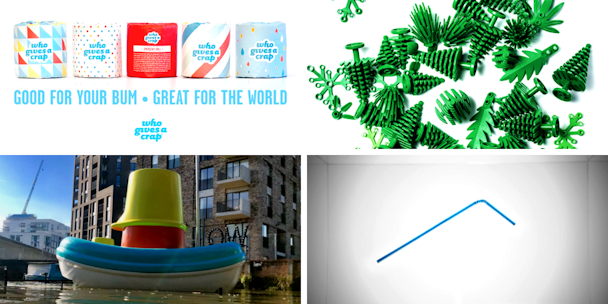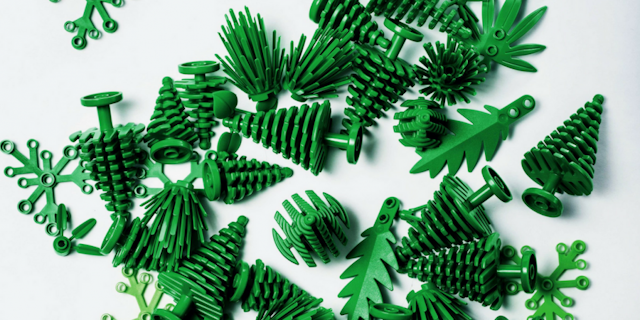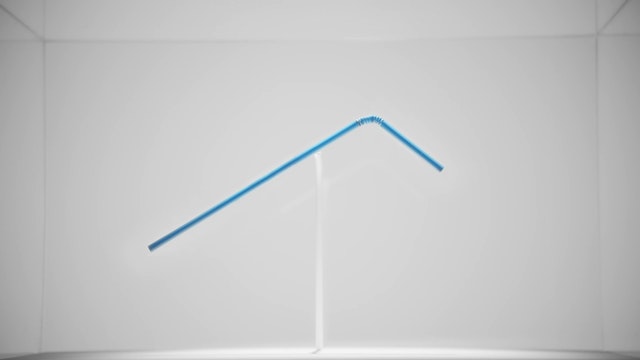When brands go green: how sustainability and environmentalism shape marketing campaigns
Reflecting the public's growing concern with impending disaster facing our natural world, brands are brushing up on their green credentials in order to win the popular vote - and perhaps make a change.

Who Gives a Crap; Lego; Ikea
Many cultural factors have contributed to the sudden surge in interest in the environment.
Sir David Attenborough’s hugely popular nature documentaries have helped raise the profile on the dangers the environment is facing. We’re seeing an increasing number of people choosing to follow a vegan lifestyle. And with the recent Extinction Rebellion protests forcing both London to a standstill and the government to act, it seems that the issues can be kicked back into the long grass.
In light of this, brands are now finding themselves in a position where they must align themselves with the environmentally conscious mindset of modern-day consumers (whether or not the nature of their businesses actually reflect what they are saying).
This development has left many original eco-friendly brands like Ecover vying for consumer attention between emerging eco-friendly brands and bigger market names just looking to make a quick buck.
The Drum highlights the brands that are backing green with the most innovative campaigns.
LadBible: Trash Isles
Touting its platform as ‘news for the social generation’, LadBible launched this Cannes Lion-wining campaign to tackle the issue of plastic pollution in the ocean and how it is affecting sea life. The campaign was created with The Plastic Ocean Foundation.
Starring British hardman Ross Kemp, the spot highlights the devastating effects that plastic pollution is having on our oceans and the creatures that call it home.
The subversive piece centers around an appeal to the UN to recognize a trash-patch the size of France as a country, so as to force other country's to contribute to its clean up. The campaign drew the support of high-profile celebrities, including Sir David Attenborough, Dame Judi Dench and Al Gore.
LadBible has backed a number of successful cause marketing campaigns, including one by mental health charity Calm in 2018.
Lego
Stepping up its efforts to tackle the current plastic crisis, in 2018 Lego launched its own blocks made from sugarcane. The Danish toy giant released a range of plant-shaped bricks named 'Plants from plants' as part of an overarching brand eco-overhaul.
It has received previous flak for toy partnerships with Shell, also the millions of plastic bricks it produces each year have a negative effect on the environment.

Lush
Despite the recent backlash that Lush has experienced from close-to-the-bone campaigns, there is no denying the brand's sustainability credentials.

Throughout its time on the high street, the cosmetics company has supported grassroots activism and animal and environmental rights. Earlier this year, Lush announced plans to remove all egg from its products in order to make them entirely vegan. Moreover, the brand encourages patrons to exchange empty packaging in store for a free face mask of your choice and to promote recycling.
Ikea
Upping the ante on their sustainability factor, Swedish flat-pack furniture emporium Ikea has made some changes to their product offering.

Recently Ikea pledged to use only recyclable materials in its textiles by 2020, highlighting the effectiveness of recycling and upcycling materials. Moreover, the homeware giant was one of the first brands to completely eliminate straws from all its bistros and restaurants, banning single-use plastic. To solidify the company's commitment to its sustainability goals, Ikea has immortalized its 'Last Straw' on display The Design Museum, London.
Ikea has also stepped up its brand activations; in 2019, to promote the opening of its new Greenwich sustainable store, the brand launched two large bath boats into the Thames to clear the river of plastic. This plastic was then collected and used to make a sculpture to be displayed at the store.
Who Gives a Crap?
Launched back in 2011, Who Gives a Crap is taking huge strides in cleaning up the planet.

Built on the premise of donating 50% of the business’ profits to improving sanitation in developing countries by fitting communities with functioning toilets, the brand doubles its reach by also doing its bit for the environment. The product is proudly free of all plastic packaging and is made solely from bamboo or recycled materials; never trees.
Moreover, it avoids the use of chemicals and inks so the product is people friendly too.
Lacoste
The French sportswear brand Lacoste made its first major foray into environmental issues in 2018 when it released a line of polo shirts to reflect the plummeting populations of endangered animals.
Replacing the brand’s iconic crocodile logo with a menagerie of ten creatures that are on the brink of extinction, the brand looks to raise awareness of these endangered animals. All profits from the 1775 polo shirts on sale were donated to IUCN in a bid to help them protect these endangered species.
The campaign marks the start of a three-year partnership between the brand and creative agency, BETC Paris.
Of course, Lacoste scores particularly low in any sustainability programs taking away from the legitimacy of the stunt.
